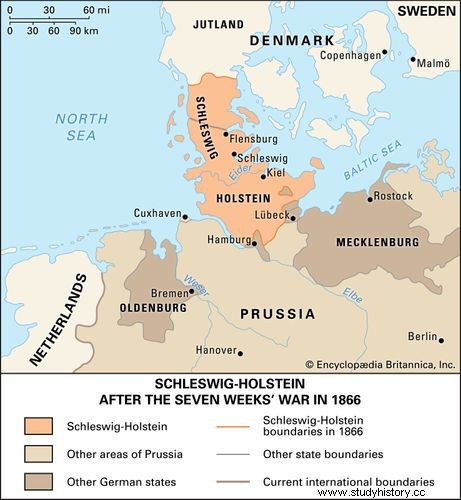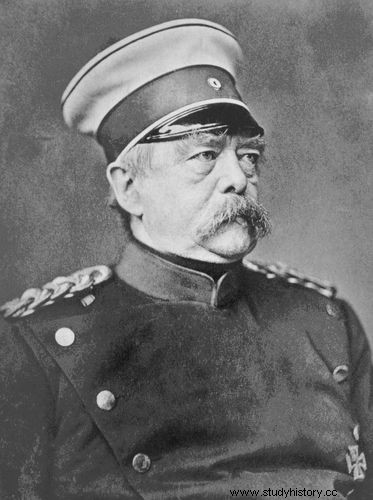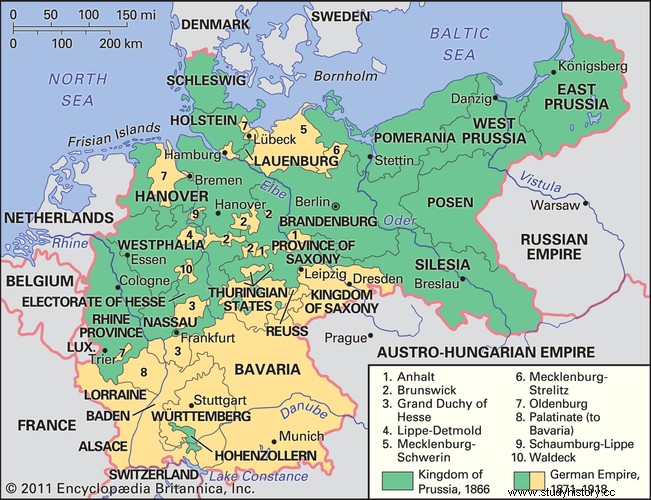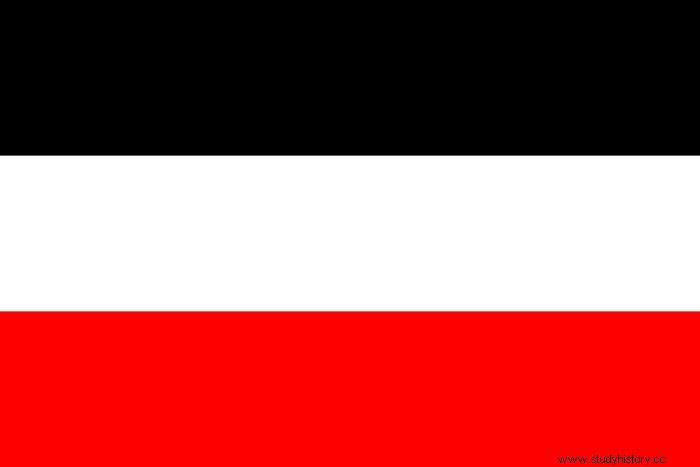German Empire , also Second Empire called , historical rich, founded on January 18, 1871 after three short, successful wars of North German State Prussia . Within seven years, Denmark Habsburg Monarchy and France been defeated. The empire did not originate in an upsurge of nationalist sentiment from the masses, but in the traditional cabinet diplomacy and approval of the heads of state of the North German Confederation led by Prussia with the hereditary rulers of Bayern , Bathing , Hesse-Darmstadt and Württemberg . Prussia covering more than three-fifths of the area of Germany with around three-fifths of the population remained up to his End at the end of the World War I the dominant force in the realm .
Bismarck and the rise of Prussia
The Treaty of Prague closed the Seven Week War with Austria and other German states on August 23, 1866 and cleared the way for a settlement both in Prussia and in the broader affairs of Germany. The Schleswig-Holstein question who had threatened Balance of Power in Northern Europe for more than a decade, took on a new dimension with the assignment of Schleswig and Holstein to Prussia. The Prussian Parliament had been dissolved at the beginning of the war, and on the day of the Battle of Hradec Králové (July 3, 1866) new elections took place . The Liberals in Parliament had a reduced majority and they were now divided in their attitude toward Prime Minister Otto von Bismarck; His success had shaken their liberal principles. The moderates broke away from the German Progressive Party to support the National Liberal Party , a party in which the Liberalism the nationalism child . Bismarck on his side made a conciliatory gesture by asking for one Compensation Act for the unconstitutional collection of taxes since the beginning of the parliamentary struggle with the Prussian king William I. in 1862. This act was passed on September 3, 1866 by a vote of 230 to 75.

It was a crucial step in German history. The Prussian liberals, hitherto real opponents of Bismarck, left their insistence on parliamentary Sovereignty fall, in exchange for the prospect of German unity and for the Assurance, that united Germany would be administered in a "liberal" spirit. Instead of a power struggle, there were compromises from then on. The capitalist Middle classes no longer demanded control over the state, the crown and the The Junker The ruling class ran the state in a way that suited the needs and perspectives of the middle class. Since the middle class were no longer liberals, the Prussian Junkers became "Germans". Neither side fully held their trade upright , and throughout the period of the empire there was another alarm about the constitutional struggle . However, the decision of September 3, 1866 was not reversed and Germany did not become a constitutional monarchy .



